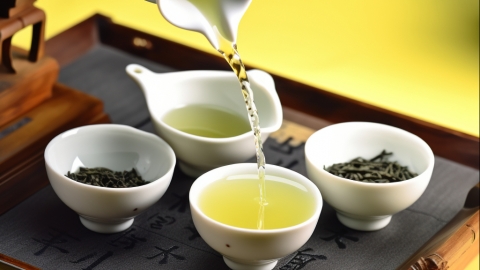What are the health benefits of drinking buckwheat tea?
Generally speaking, drinking buckwheat tea offers multiple health benefits, primarily including promoting improved blood circulation, beautifying the skin, aiding digestion, regulating blood sugar levels, and reducing blood lipid levels. Detailed explanations are as follows:

1. Improved Blood Circulation
Rutin and other flavonoid substances in buckwheat tea can enhance the elasticity of blood vessel walls and reduce the permeability of capillaries. This helps prevent and improve bleeding problems caused by fragile blood vessels, such as nosebleeds and gum bleeding.
2. Skin Beautification
Rutin in buckwheat tea helps the body absorb and effectively utilize vitamin C, thus preventing cellular damage caused by free radicals. This can help reduce wrinkles, make the skin more lustrous, and maintain collagen levels in the body, which helps reduce fine lines and delay skin aging.
3. Promote Digestion and Relieve Constipation
The dietary fiber in buckwheat tea can stimulate intestinal peristalsis, increase stool volume, and prevent and alleviate constipation. At the same time, it can regulate intestinal flora by providing nutrients for beneficial bacteria and inhibiting the proliferation of harmful bacteria.
4. Regulate Blood Sugar
Buckwheat tea contains abundant dietary fiber, especially the fiber in tartary buckwheat, which can slow down carbohydrate absorption, preventing rapid increases in blood sugar levels. The soluble fiber in buckwheat tea can also reduce bile accumulation and prevent gallstone formation, thus playing a positive role in preventing gallstones.
5. Lower Blood Lipids
Rutin in buckwheat tea is an important bioactive component. Rutin can lower the levels of cholesterol and triglycerides in the blood by inhibiting cholesterol synthesis in the liver and promoting cholesterol excretion, thereby regulating blood lipid levels.
However, please note that buckwheat tea is relatively cooling in nature, and individuals with cold stomach conditions or stomach diseases should consume it less frequently to avoid discomfort such as acid reflux and diarrhea. Additionally, a small number of people may experience allergic reactions to buckwheat tea, such as skin itching, dizziness, or asthma. Therefore, individuals with allergic constitutions should consume it cautiously. When drinking buckwheat tea, it should be consumed in moderation to avoid excessive intake that may lead to bodily discomfort.







